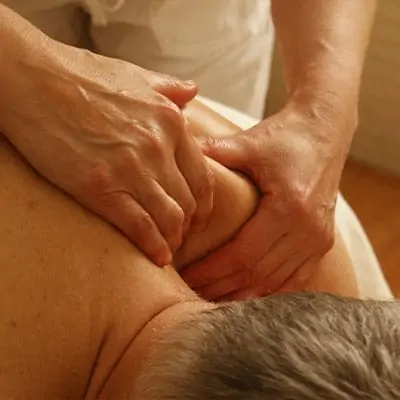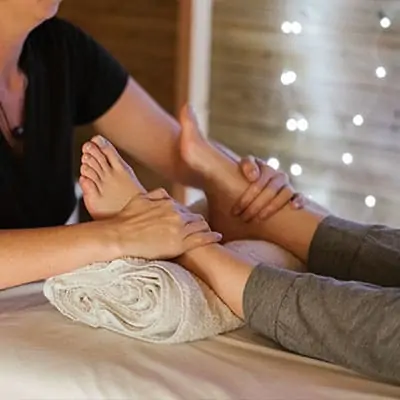Discover top-notch personalized care at Cambridge Physiotherapy & Rehab Center. We specialize in alleviating degenerative joint disease symptoms, improving mobility, and enhancing life quality in Cambridge. Your journey to joint health starts here.
Understanding Degenerative Joint Disease
Degenerative joint disease , also known as osteoarthritis, is the most common form of arthritis, characterized by the breakdown of cartilage in the joints. This can lead to pain, stiffness, swelling, and decreased mobility, significantly impacting daily activities and overall well-being.
Symptoms to Be Aware Of
Individuals with degenerative joint disease may experience:
- Joint Pain: Especially after activity or towards the end of the day.
- Stiffness: Particularly noticeable after periods of inactivity or in the morning.
- Swelling: Caused by inflammation in and around the joint.
- Reduced Range of Motion: Making it difficult to perform everyday tasks.
Contributing Factors
Several factors can contribute to the development of degenerative joint disease, including:
- Age: The risk increases with age, as joints wear down over time.
- Genetics: A family history of osteoarthritis can increase susceptibility.
- Injury: Past joint injuries can lead to degenerative changes.
- Obesity: Excess weight puts additional pressure on joints, particularly those in the lower body.
Personalized Physiotherapy Recovery Plan
At Cambridge Physiotherapy & Rehab Center, we prioritize physiotherapy as a central component of degenerative joint disease treatment. By developing a customized program of exercises and therapies, we aim to strengthen the muscles around the joints, increase flexibility, and reduce pain.
Customized Treatment Strategies
Each treatment plan is carefully tailored to meet your needs and may include:
- Targeted Exercise Programs: To build strength, enhance flexibility, and support joint health.
- Pain Management Techniques: Including modalities such as heat and cold therapy, and manual therapy to alleviate discomfort.
- Lifestyle and Ergonomic Advice: To help manage symptoms and prevent further joint deterioration.
A Holistic Approach to Care
Understanding that effective treatment extends beyond the physical symptoms, we offer:
- Regular Progress Assessments: To adjust your treatment plan as needed, ensuring optimal outcomes.
- Comprehensive Education: Empowering you with knowledge about your condition and how to manage it effectively.
Explore Our Comprehensive Treatment Services
At Cambridge Physiotherapy & Rehab Center, we offer a wide array of services designed to address not just degenerative joint disease but a variety of health conditions, supporting your path to a healthier, more active life.
Why Choose Cambridge Physiotherapy & Rehab Center for Degenerative Joint Disease Treatment?
Choosing Cambridge Physiotherapy & Rehab Center in Cambridge means entrusting your care to a team that offers:
- Expertise in Joint Health: Our healthcare professionals are leaders in treating degenerative joint disease, employing the latest in research and therapeutic techniques.
- Personalized Care Plans: Recognizing the unique challenges of each case, we develop strategies tailored to your individual needs and goals.
- Innovation in Treatment: We’re committed to utilizing the most advanced treatment options available, ensuring you receive the highest quality of care.
- Compassionate Support: From your first consultation through every step of your rehabilitation, we’re here to provide the encouragement and support you need.
Begin Your Path to Improved Joint Health
If degenerative joint disease is impacting your life, reach out to Cambridge Physiotherapy & Rehab Center in Cambridge. Our dedicated team is ready to assist you in managing pain, enhancing mobility, and reclaiming an active, fulfilling lifestyle. Start your journey back to health with us today.
We Offer Treatment for a Variety of Chronic Conditions
|
|
Degenerative Joint Disease Treatment Cambridge FAQs
Can Lifestyle Changes Slow the Progression of Degenerative Joint Disease?
Yes, making specific lifestyle changes can significantly slow the progression of degenerative joint disease and alleviate symptoms. Maintaining a healthy weight reduces stress on weight-bearing joints, decreasing the rate of cartilage wear. Regular, low-impact exercise such as swimming or cycling enhances joint flexibility and muscle strength without exacerbating joint pain. Adopting a balanced diet rich in anti-inflammatory foods can also mitigate joint inflammation and pain. Avoiding tobacco use and limiting alcohol consumption are beneficial as well. These changes, combined with physiotherapy, can contribute to managing the condition effectively.
How Often Should I Attend Physiotherapy Sessions for Degenerative Joint Disease?
The frequency of physiotherapy sessions for degenerative joint disease depends on the severity of your condition, your goals, and how you respond to treatment. Initially, you may need to attend sessions more frequently, possibly several times a week, to gain momentum in your recovery. As you make progress, the frequency may decrease, and you’ll be encouraged to continue exercises at home. Your physiotherapist will develop a personalized treatment plan, including the recommended number of sessions, to ensure optimal outcomes. Regular assessments will help adjust your plan as needed to align with your progress and goals.
Is It Possible to Completely Cure Degenerative Joint Disease?
While there is currently no cure for degenerative joint disease, the condition can be managed effectively with the right combination of treatments. The goal of treatment is to reduce pain, improve joint function, and enhance the quality of life. Physiotherapy and lifestyle changes can significantly alleviate symptoms and slow the progression of the disease. Advanced cases may require more invasive treatments, but these are generally aimed at symptom management rather than a cure. It’s important to work closely with your healthcare team to develop a personalized treatment plan that addresses your specific needs and goals.
What Impact Does Weather Have on Degenerative Joint Disease Symptoms?
Many people with degenerative joint disease report that their symptoms worsen with cold or damp weather. Although the exact reason is not fully understood, it’s believed that changes in barometric pressure could cause expansion or contraction in the tissues around the joints, leading to increased pain or discomfort. To manage this, staying warm, using heat therapy, and maintaining active indoor exercises can help alleviate the increased joint pain during colder months. Dressing in layers, warming up joints with a hot bath or heating pads, and staying as active as possible can mitigate the impact of weather on joint symptoms.
Cambridge Physiotherapy & Rehab Center
895 Langs Dr Unit #2, Cambridge, ON N3H 5T6, Canada
(519) 219 5428
Hours:
Monday: 9 AM–5 PM
Tuesday: 9 AM–8 PM
Wednesday: 9 AM–5 PM
Thursday: 9 AM–8 PM
Friday: 9 AM–5 PM








